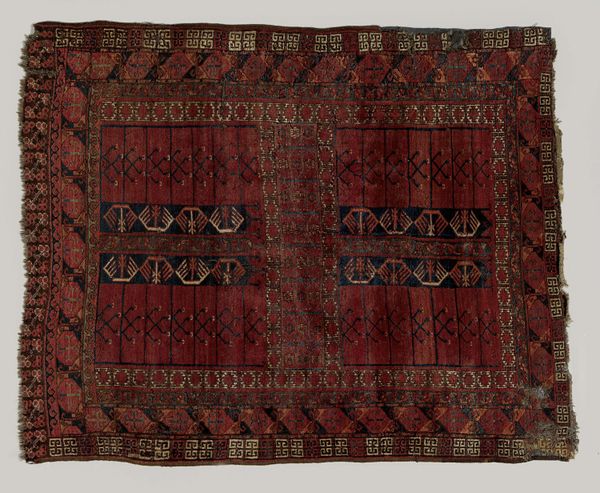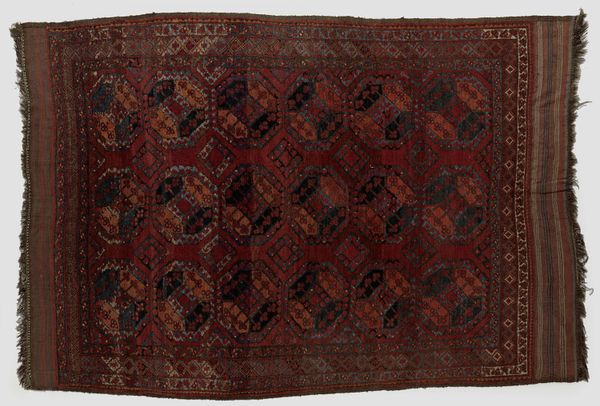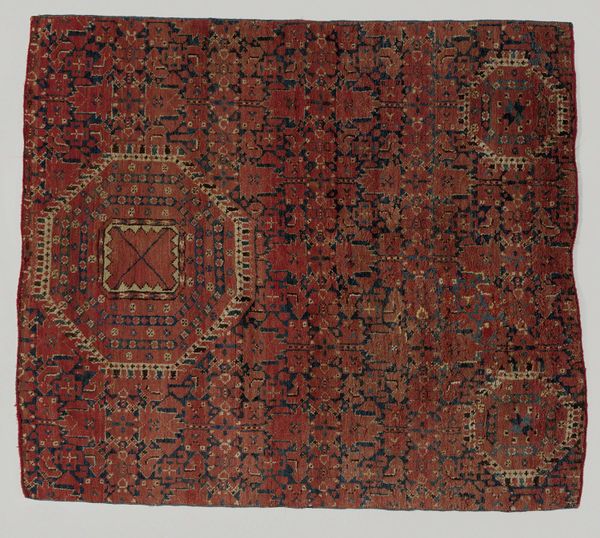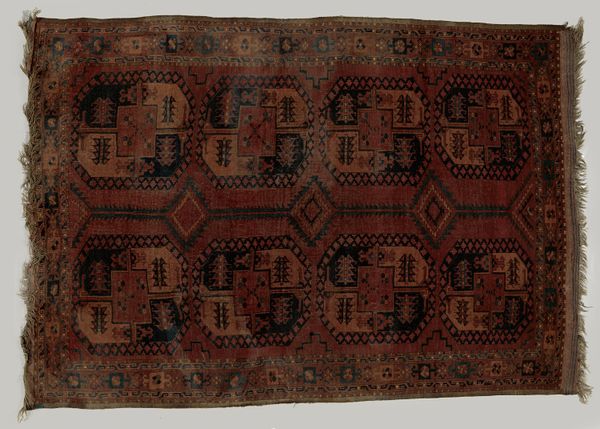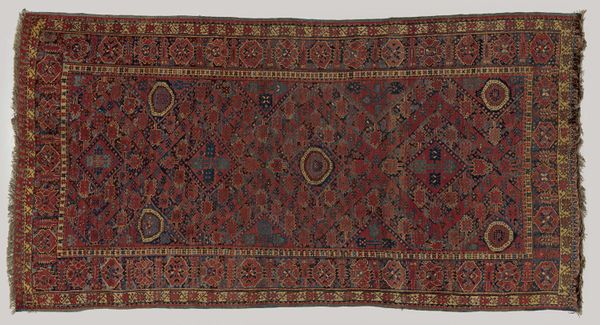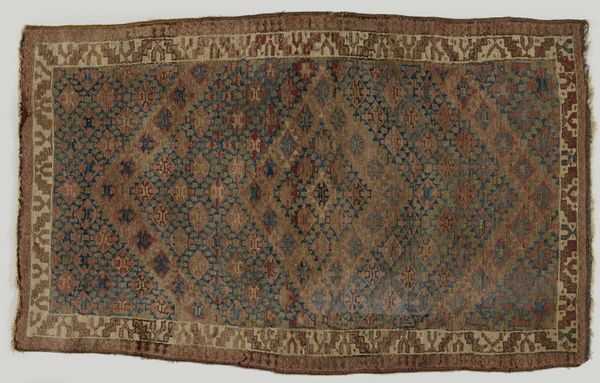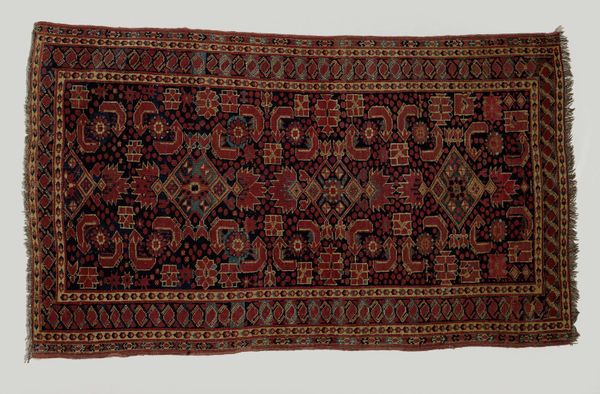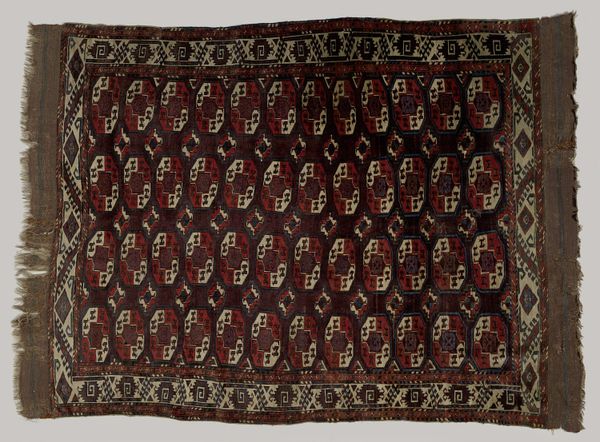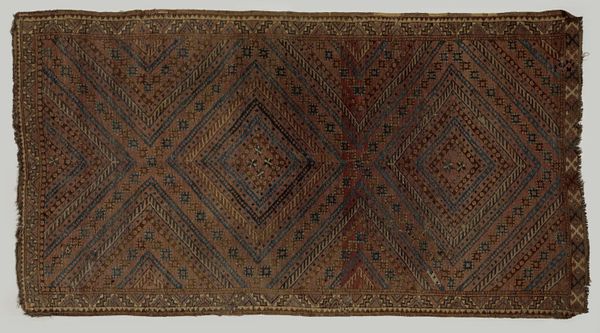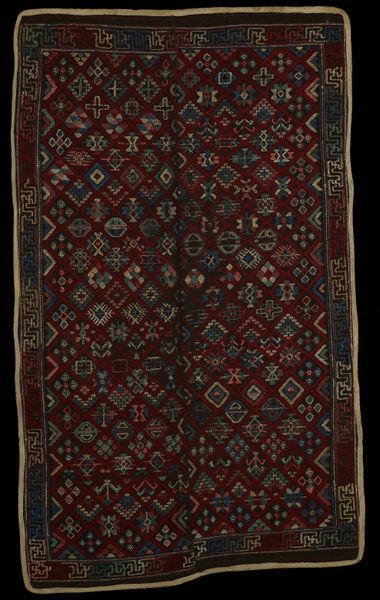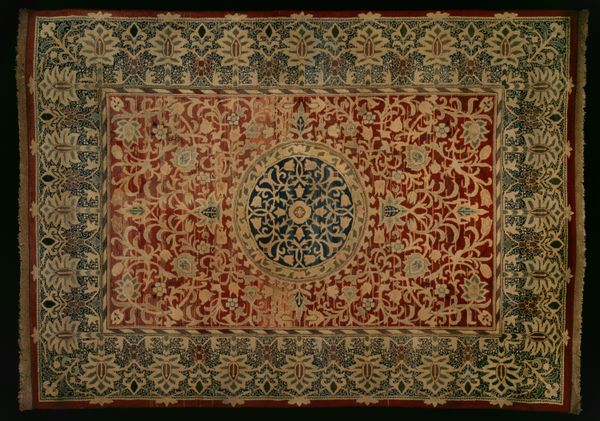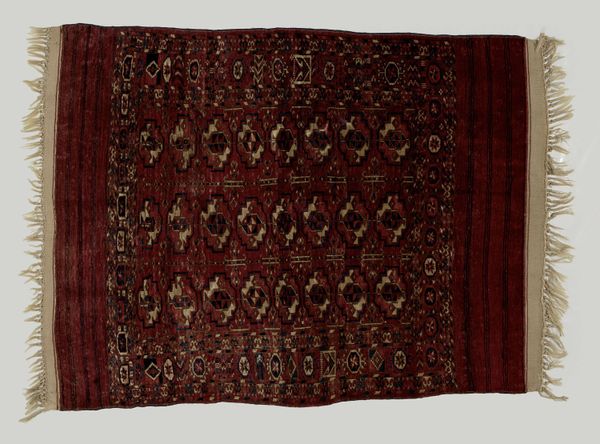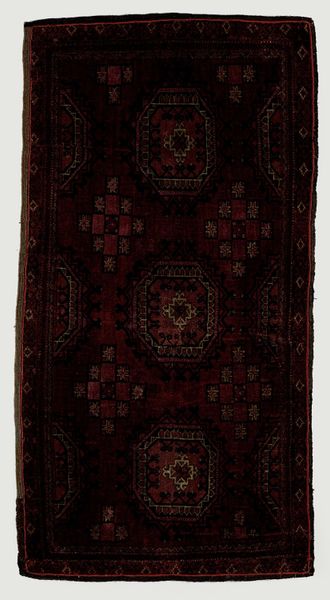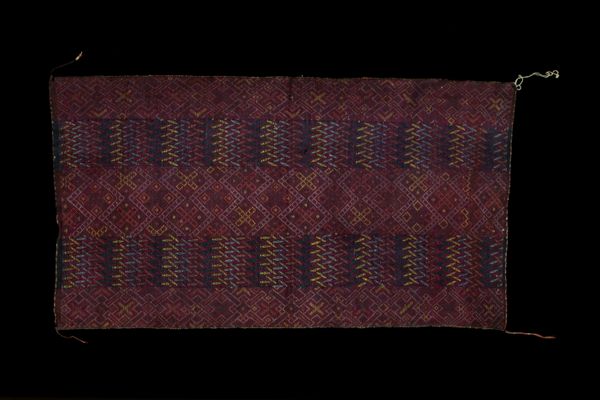
weaving, textile
#
weaving
#
textile
#
geometric
#
orientalism
#
abstraction
#
islamic-art
Dimensions: height 194 cm, width 153 cm
Copyright: Rijks Museum: Open Domain
This carpet was woven by the Ersari people, showcasing a vibrant geometric design on a wool surface. The carpet's visual impact stems from its orchestration of color and form: deep reds and blues create a compelling visual field. The repeating motifs present a fascinating interplay of symmetry and subtle variation, inviting us to consider the relationship between the individual and the collective. The carpet’s formal structure, with its grid-like arrangement of guls, prompts a semiotic analysis. These guls, or tribal emblems, can be seen as signs that carry cultural and historical information. The borders, adorned with geometric patterns, function as frames that both contain and accentuate the central design. The carpet's aesthetic lies in the structured arrangement of shapes and colors, echoing a deeper cultural narrative woven into its very fabric. Its interpretation is not static but evolves with our understanding, inviting new perspectives on its meaning and significance.
Comments
No comments
Be the first to comment and join the conversation on the ultimate creative platform.
